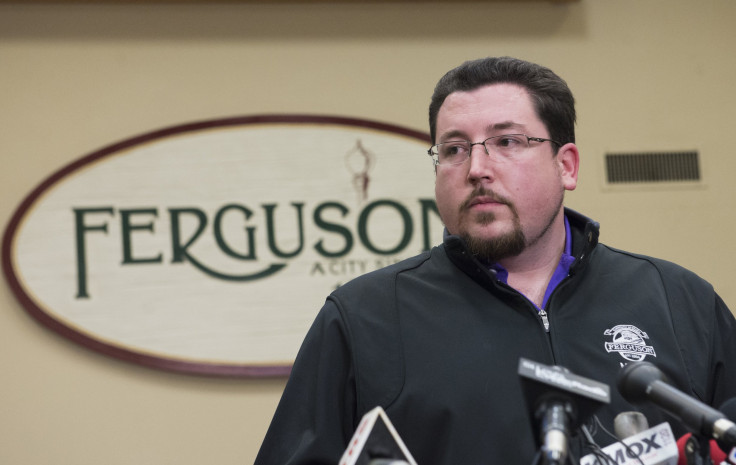Ferguson News: Recall Petition For Mayor James Knowles Falls Short Of Needed Signatures, Elections Official Says

Activists who vowed to recall the mayor of Ferguson, Missouri, in the wake of the fatal shooting of Michael Brown, failed to get enough backing for the effort, an official of the St. Louis County Board of Elections said Tuesday. The activists’ petition against Mayor James Knowles fell short of the needed signatures by about 800 names the official, Eric Fey, told the St. Louis Post-Dispatch.
The petition needed 1,814 signatures but only collected 1,008 valid names, Fey said. Civil unrest sparked by the death of Brown -- an unarmed, African-American 18-year-old who was killed by former Officer Darren Wilson last August -- drew national interest to electoral politics in the small suburb of St. Louis. In the wake of the unrest, Knowles refused to answer residents’ calls for his resignation.
"We understand the rights of the petitioners and their recall efforts,” Knowles said in a statement released Tuesday, according to the Post-Dispatch. “But for as long as I am mayor, I will continue to work with council and staff to bring together the citizens of Ferguson, and to move our community forward with the many reforms and initiatives that we have been working on for several months."
A leader of Ground Level Support, the group that pushed for Knowles' recall, told the Post-Dispatch that he would not give up on recalling the mayor. The group has 10 more days to produce the rest of the signatures, said Tony Rice, its leader. "Eight hundred is going to be tough to pull off, but we are going to try," he said.
While activists pushed to increase voter engagement in the majority-black city, the recall effort sought to oust Knowles from his leadership role in the local government. Ferguson has been criticized by federal law enforcement officials for condoning racially discriminatory policing tactics that disproportionately impact African-Americans.
In the fallout of a U.S. Department of Justice investigation, the city’s manager and police chief resigned. It will be up to the new council administration to replace the interim manager and police chief.
For the first time in Ferguson’s 120-year history, the mostly white local government has become more representative of the city’s 21,000 population, which is approximately 66 percent black. A higher-than-average 30 percent voter turnout for its April municipal election saw the election of two black city council members.
© Copyright IBTimes 2025. All rights reserved.






















